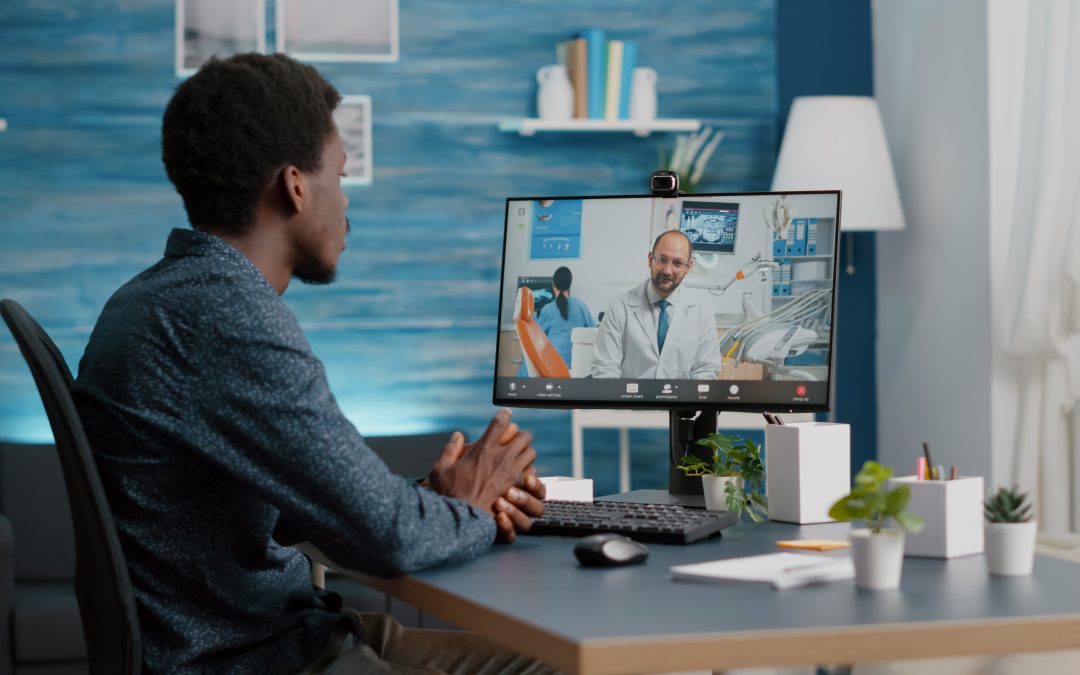Introduction
Telemedicine is a growing industry that’s changing the way we approach health care. Telehealth providers are able to offer an increased level of accessibility, timeliness, and efficiency within the healthcare system. However, telehealth providers must be aware of the laws surrounding this practice in order to avoid legal issues down the road.
Telehealth is defined as the delivery of health care and medical services through telecommunications to improve accessibility, timeliness, efficiency, and quality of healthcare.
Telehealth is defined as the delivery of health care and medical services through telecommunications to improve accessibility, timeliness, efficiency, and quality of healthcare. It can be delivered via phone, internet, or video conferencing. Telehealth has been used to treat chronic diseases and manage acute illnesses such as stroke, heart attack, and pneumonia.
Telemedicine is a subset of telehealth that involves real-time interactions between patients with their providers using technology such as smartphones or computers for diagnosis or treatment purposes (eHealth Literacy).
There are several regulatory groups that can help you navigate the legalities of telehealth.
There are several regulatory groups that can help you navigate the legalities of telehealth.
- The state Board of Nursing. This organization regulates nurse practitioners and registered nurses, ensuring they have proper training and are licensed to practice in your state. They also have jurisdiction over telehealth services provided by nurses, such as video conferencing or phone calls with patients who need to be monitored remotely.
- The state Board of Medicine. This group licenses physicians and other medical professionals, including physician assistants and nurse practitioners who work under a doctor’s supervision (physician extenders). They have authority over all aspects of medical practice including telemedicine practices like video conferencing or phone calls with patients who need to be monitored remotely by doctors or other medical professionals
The state Department of Health. This organization regulates the practice of medicine, including medical licensure and telemedicine. They also make sure that patients are protected from potential abuse or fraud by providers.
The state attorney general. This office has jurisdiction over telemedicine providers and can investigate any complaints about them. The state department of public health. This organization regulates the practice of medicine, including medical licensure and telemedicine. They also make sure that patients are protected from potential abuse or fraud by providers.
The state Department of Insurance. This group regulates the insurance industry in your state and makes sure that providers are licensed to do business there. The state attorney general. This office has jurisdiction over telemedicine providers and can investigate any complaints about them.
Each state has its own rules for telehealth providers.
In the United States, telehealth providers are regulated by state law. Each state has its own rules and requirements for telehealth practitioners, including who they can treat and what types of services they can provide.
There are also some federal regulations that apply to telehealth providers in certain situations:
- The federal government regulates Medicare reimbursement rates for services provided by physicians who practice via videoconferencing technology or internet communications tools such as Skype or FaceTime (for example). This is because these services fall under Medicare Part B coverage; however, other types of telehealth services do not receive this same level of regulation because they do not directly impact insurance coverage.
For example, a mental health provider may use video chat tools to conduct therapy sessions with their patients. These services are not covered by Medicare Part B, so they do not fall under federal regulations.
Telehealth is a growing field and there are many different types of providers. A telemedicine provider, for example, is someone who does not have an office and provides care via videoconferencing technology such as Skype or FaceTime. A telepsychiatrist uses the same technology to treat psychiatric disorders.
The most important thing is to do your due diligence and make sure you’re following the laws of your state.
The most important thing is to do your due diligence and make sure you’re following the laws of your state. If you aren’t, there’s a good chance that your telehealth business could be shut down, or worse yet–the people using it could be put at risk.
Not only that but doing things right from the get-go will save you a lot of time and money later on down the road when it comes time for regulation compliance audits by state agencies (which will happen).
If you’re not sure what the laws are in your state, talk to an attorney who specializes in telehealth law. They’ll be able to tell you exactly what needs to be done to get started and keep things running smoothly.
Telehealth is a growing industry that requires a lot of research to ensure compliance with the law
Telehealth is a growing industry with increasing demand, but it also has its challenges. Each state has its own rules for telehealth providers, and there are often regional differences within states. The most important thing to do is to do your due diligence and make sure you’re following the laws of your state before beginning any telehealth practice.
If you’re looking to start a telehealth practice, here are some things you should keep in mind:
1. The laws in your state
2. What types of services you can provide
3. How to get started
4. What you need to get started
5. How to market your practice
Conclusion
Telehealth is a growing industry that requires a lot of research to ensure compliance with the law. The most important thing is to do your due diligence and make sure you’re following the laws of your state.

